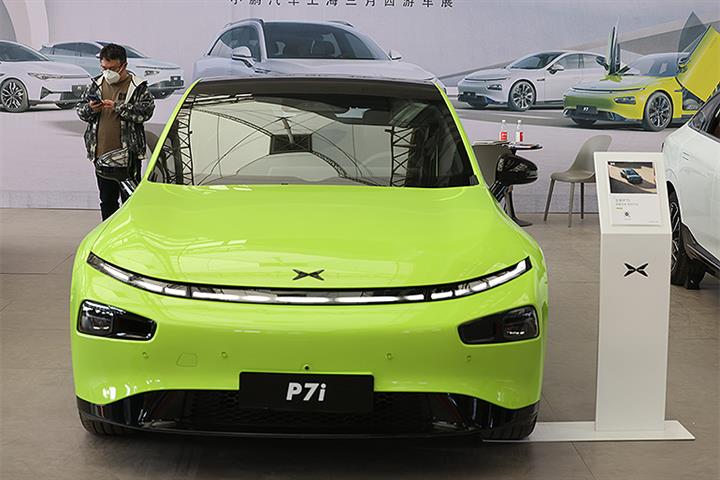 Xpeng Bosses Stay On After EV Startup Finishes Reshuffle Despite Reports to Contrary, Source Says
Xpeng Bosses Stay On After EV Startup Finishes Reshuffle Despite Reports to Contrary, Source Says(Yicai Global) April 13 -- Xpeng Motors has wrapped up executive management changes begun last October, and the three key members of the Chinese carmaker’s leadership team rumored to be changing roles or leaving are still at the electric vehicle startup, according to a company insider.
Xpeng’s co-founders Xia Heng and He Tao, as well as Chief Talent Officer and Vice President of Sales Liao Qinghong have not left as reported by some media last month, the source told Yicai Global yesterday.
Tech news outlet 36Kr reported on March 9 that several key members of Xpeng’s leadership team had stepped down or were about to resign. Liu Minghui, vice president of the powertrain department, had left and would be replaced by Gu Jie, a former executive at US auto parts maker Delphi, Liao was about to resign, and Xia and He Tao would likely be involved as well, the report said.
After the management shakeup, Xpeng’s research and development, production, and supply chain departments will report directly to Chairman He Xiaopeng, who said that a clear roadmap had been outlined to cut autonomous driving and other software system costs by more than 50 percent and hardware system material costs, including for powertrains, by 25 percent, according to the source.
Xpeng announced yesterday that Wang Fengying, former president of Chinese automaker Great Wall Motor, has become president and other key executives will continue to serve in their original positions. Wang took up the role on Jan. 30, the Shanghai-based company said, adding that he is responsible for product planning, product matrix, and the sales system, and has beefed up the ability and efficiency of the sales service and further strengthened brand marketing.
Xpeng also said Yi Han, a former executive at Chinese car giant Geely, has joined the company.
Shares of Xpeng [HKG: 9868] ended today 1.5 percent down at HKD39.80 (USD5) after the firm released its 2022 earnings report. Its New York-listed stock [NYSE: XPEV] fell 5.5 percent to close at USD9.91 yesterday.
Xpeng’s net loss widened 88 percent to CNY9.1 billion (USD1.3 billion) in the 12 months ended Dec. 31 from the year before. Revenue rose 28 percent to CNY26.9 billion (USD3.9 billion).
Editor: Futura Costaglione